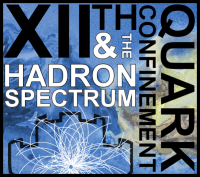Speaker
Description
The recent observation by the LIGO collaboration of black hole merges using gravitation waves opens a new portal to study our universe. The sensitivity of gravitation waves measurements is likely to be extended in the coming future to allow the detection and study of neutron stars merges. Such merges are thought to be the main source for r-process nuclear synthesis and can potentially act as a laboratory for testing high-field gravity models. As the structure of neutron stars is a delicate balance between the gravitational and nuclear forces, taking full advantage of the advanced astrophysical capability requires parallel development of our understanding of the properties of dense, cold, nuclear matter.
In this talk I will present the study of nucleon-nucleon short-range correlations in nuclei: high-density fluctuations of nuclear matter. I will show how electron- and proton-induced two-nucleon hard-knockout reactions allow us to study these objects, probing properties of nuclear matter at supranuclear densities, and discuss their implications for various fields of physics.
